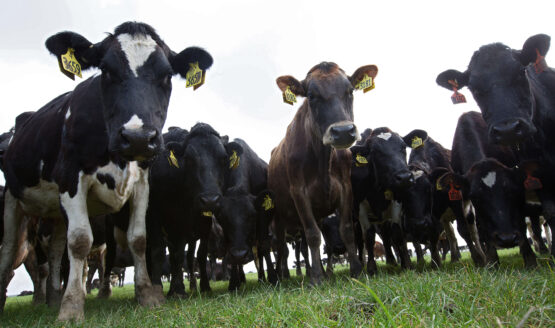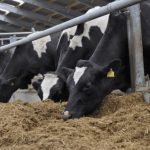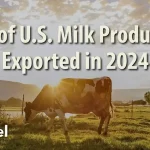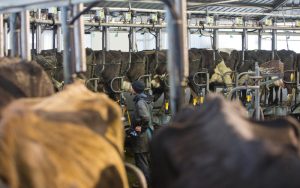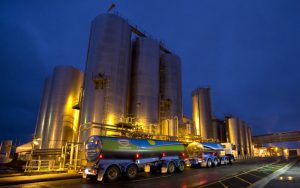
Scientists discover affordable solution using a common chemical to dramatically cut dairy farm emissions, piloting now in NZ.
Scientists Keith Cameron and Hong Di have unveiled a groundbreaking innovation, EcoPond, poised to revolutionize how dairy farms manage methane emissions from cow dung. Addressing the critical environmental challenge that manure accounts for approximately 10% of livestock methane – a highly potent greenhouse gas – EcoPond offers a much-needed, affordable solution. While large industrial farms traditionally rely on expensive anaerobic digesters, smaller farms have historically lacked cost-effective alternatives. This breakthrough could transform agribusiness sustainability.
The discovery was serendipitous: while researching methods to recycle water from dairy farm lagoons, Cameron and Di found that introducing polyferric sulfate to the wastewater dramatically reduced methane emissions by over 90%. This remarkable effect occurs because the chemical stimulates sulfate-reducing microorganisms, which effectively outcompete the methane-generating microbes for essential nutrients. This biological rivalry results in a significant reduction of harmful gas release.
EcoPond is currently being rigorously piloted on 250 farms associated with New Zealand’s dairy giants, Fonterra Co-operative Group and Synlait Milk. Fonterra has set an ambitious target to cut its on-farm emissions intensity by 30% by 2030. Initial projections indicate that the EcoPond treatment alone could contribute substantially, potentially reducing individual dairy farm emissions by a remarkable 7% to 9%, showcasing its potential impact on dairy economics and environmental targets.
The process for implementing EcoPond is designed for practicality on working farms. It involves mixing polyferric sulfate and sulfuric acid directly with the lagoon slurry, which is then reintroduced to the lagoon. This treatment is recommended to be repeated every six to eight weeks to maintain its efficacy. While the exact cost for farmers is still being determined through the pilot, it is anticipated to be an affordable solution, especially with support from cooperatives.
This innovative development offers a vital tool for milk producers globally who are under increasing pressure to reduce their environmental footprint. Beyond its impressive emission reduction capabilities, initial studies have shown no significant negative impact on pasture yield or soil condition, addressing key concerns for farmers. EcoPond represents a significant leap forward in sustainable dairy farming and global efforts to combat climate change.
Source: Moneyweb: Scientists stumble upon way to reduce cow dung methane emissions
You can now read the most important #news on #eDairyNews #Whatsapp channels!!!
🇺🇸 eDairy News INGLÊS: https://whatsapp.com/channel/0029VaKsjzGDTkJyIN6hcP1K
